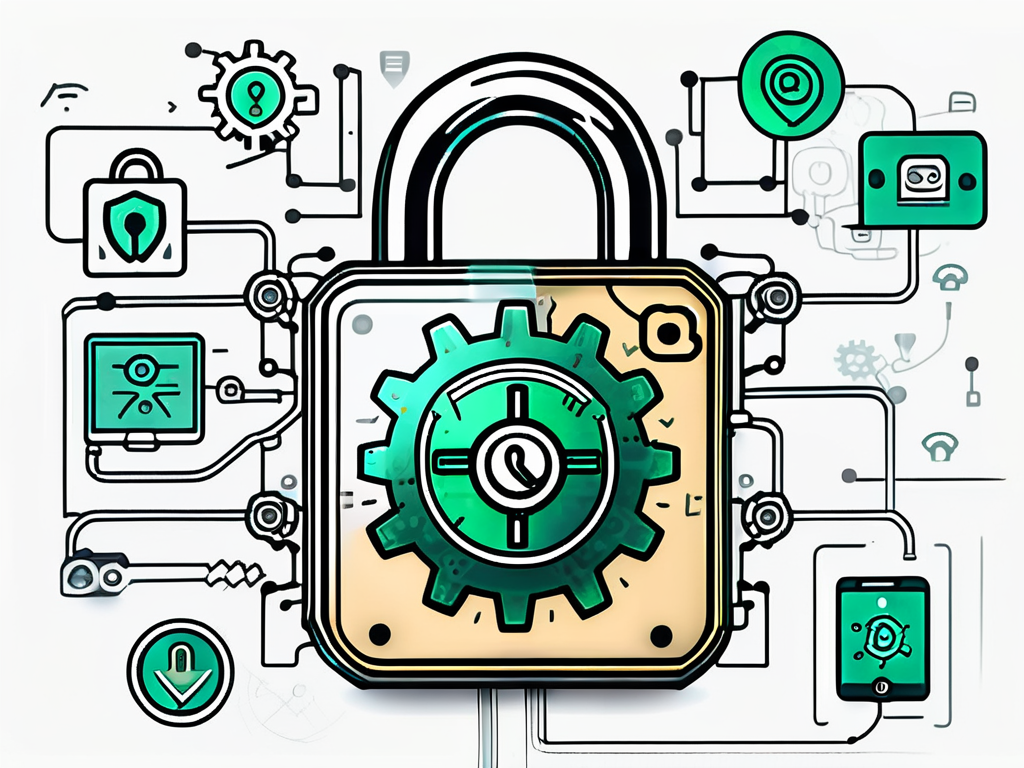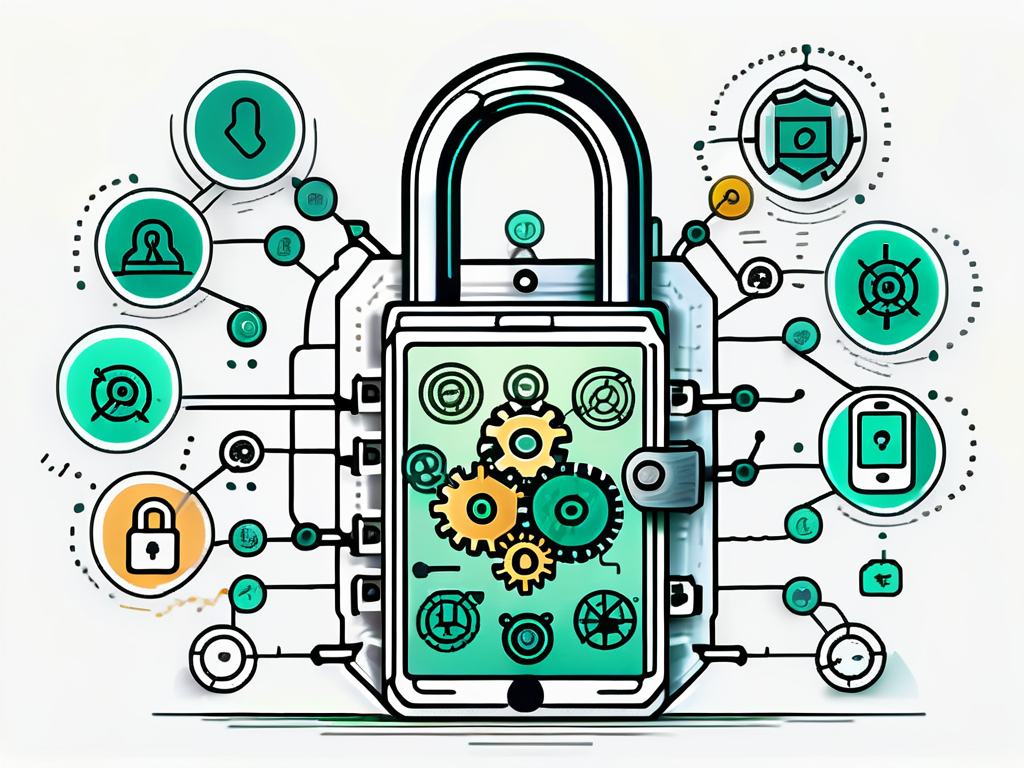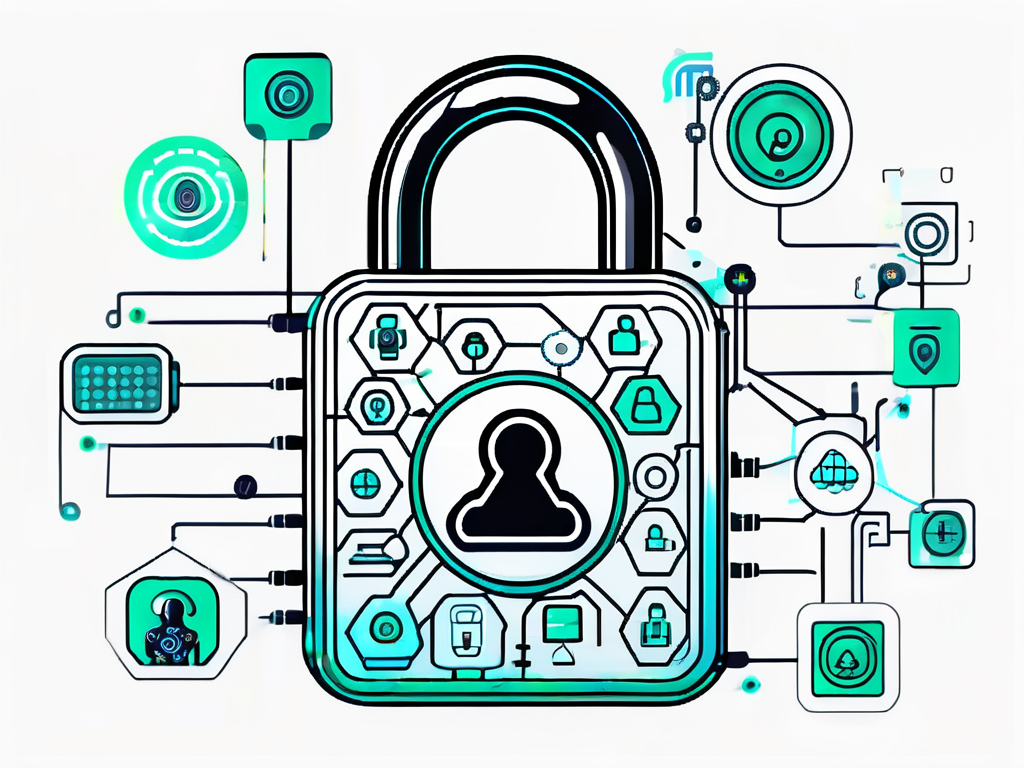In today’s fast-paced business world, finding efficient and effective ways to communicate with customers is essential. WhatsApp, one of the most popular messaging platforms, has become an invaluable tool for businesses to connect with their target audience. However, managing and responding to a large volume of messages manually can be time-consuming and overwhelming. That’s where WhatsApp Business Automation comes in – a game-changer for businesses looking to streamline their communication processes, improve customer engagement, and drive growth. In this article, we will delve into the various aspects of WhatsApp Business Automation, exploring its basics, discussing different techniques, understanding implementation strategies, measuring success, and exploring future trends. So, let’s dive in and unlock the power of WhatsApp Business Automation!
Understanding WhatsApp Business Automation
When we talk about WhatsApp Business Automation, it refers to leveraging smart technology to automate routine tasks and create personalized experiences for customers. By utilizing automation, businesses can respond to customer queries promptly, provide timely updates, and engage with their audience in a more targeted manner. This ultimately improves customer satisfaction, saves time, and boosts overall productivity.

Implementing WhatsApp Business Automation involves setting up automated responses, creating chatbots, and utilizing data analytics to tailor messages based on customer behavior. This level of automation not only streamlines communication but also allows businesses to gather valuable insights into customer preferences and trends.
The Basics of WhatsApp Business Automation
To get started with WhatsApp Business Automation, it is crucial to have a clear understanding of the platform’s features and functionalities. WhatsApp Business offers several key features designed specifically for businesses, such as verified profiles, automated greetings, and Quick Replies. These features allow businesses to establish a professional presence on WhatsApp and automate routine interactions for a seamless customer experience.
Furthermore, businesses can integrate WhatsApp Business with their existing CRM systems to ensure a unified approach to customer communication. This integration enables seamless data synchronization, personalized messaging based on customer history, and efficient management of customer interactions across multiple channels.
The Importance of Automation in Business Communication
Automation plays a vital role in enhancing business communication. By automating repetitive tasks, businesses can focus their valuable time and resources on more critical activities. With WhatsApp Business Automation, businesses can handle a large volume of customer queries efficiently, ensuring that no customer gets left unanswered. Moreover, automation enables businesses to provide 24/7 support, improving customer satisfaction and building trust.
Additionally, automation in business communication leads to increased scalability and consistency in messaging. Businesses can create predefined workflows that guide customers through common inquiries, ensuring a standardized and professional response every time. This consistency not only enhances the customer experience but also strengthens brand identity and reliability.
Exploring Different WhatsApp Business Automation Techniques
WhatsApp Business Automation offers a wide range of techniques that businesses can leverage to automate their communication processes. Let’s explore some of the most popular and effective techniques:
Auto-Responses and Scheduled Messages
Auto-responses and scheduled messages are powerful tools that businesses can use to provide instant replies and timely updates to customers. Auto-responses allow businesses to set predefined messages for frequently asked questions or general inquiries. This feature not only saves time but also ensures that customers receive prompt and accurate information, enhancing their overall experience with the business.
Scheduled messages, on the other hand, enable businesses to send messages at a specific time or date, ensuring customers receive important information in a timely manner. For example, a restaurant can schedule messages to remind customers about their upcoming reservations or inform them about special promotions. This proactive approach helps businesses stay connected with their customers and increases engagement.
Chatbots for Customer Service
Chatbots have revolutionized customer service, and WhatsApp Business is no exception. Integrating chatbots into WhatsApp allows businesses to automate conversations and provide instant responses to customer queries. Chatbots can handle simple inquiries, such as checking business hours or providing basic product information, freeing up human agents to focus on more complex issues.
Moreover, chatbots can also provide personalized recommendations based on customer preferences and previous interactions. By analyzing data from previous conversations, chatbots can suggest relevant products or services, enhancing the customer’s shopping experience. This level of automation not only improves efficiency but also ensures that customers receive accurate and tailored recommendations, increasing the chances of making a sale.
CRM Integration for Streamlined Operations
Integration with Customer Relationship Management (CRM) systems is crucial for businesses to automate and streamline their operations effectively. By integrating WhatsApp Business with their CRM, businesses can track customer interactions, maintain a centralized database, and provide personalized experiences based on customers’ previous interactions and preferences.
For instance, when a customer reaches out to a business through WhatsApp, the CRM system can automatically retrieve their purchase history, previous inquiries, and preferences. This information allows businesses to provide a more personalized and efficient service, as agents have access to relevant data right at their fingertips. Additionally, the integration enables businesses to automate follow-up messages, ensuring that customers receive timely updates and offers based on their previous interactions, further enhancing customer satisfaction and loyalty.
Implementing WhatsApp Business Automation
Now that we have explored different automation techniques, let’s look at how businesses can implement WhatsApp Business Automation successfully:
Setting Up Your WhatsApp Business Account
The first step to implementing WhatsApp Business Automation is setting up a WhatsApp Business account. This involves creating a verified business profile, providing relevant information about your business, and customizing your profile to align with your brand identity.
When setting up your WhatsApp Business account, it’s crucial to pay attention to details such as adding business hours, contact information, and a compelling business description. These elements not only help customers understand your business better but also contribute to building credibility and trust.
Choosing the Right Automation Tools
Once your WhatsApp Business account is set up, the next step is to explore and select the right automation tools that align with your business goals. There are various automation platforms available that offer features like chatbot integration, auto-responses, and CRM integration. Make sure to choose tools that fit your business requirements and can effectively automate your communication processes.
Consider conducting a trial period with different automation tools to assess their performance and compatibility with your business operations. This hands-on approach can provide valuable insights into the user interface, response time, and overall user experience, helping you make an informed decision.
Developing an Automation Strategy
Before diving into WhatsApp Business Automation, it is essential to develop a clear automation strategy that aligns with your overall business objectives. Identify the key areas where automation can add value, define your goals, and outline the specific automation techniques you will deploy. A well-defined strategy will ensure a smooth and successful implementation.
Moreover, consider creating a roadmap for automation implementation, outlining milestones, timelines, and key performance indicators (KPIs) to track the effectiveness of your automation efforts. Regularly review and fine-tune your automation strategy based on performance data to optimize results and enhance customer engagement.
Measuring the Success of Your WhatsApp Business Automation
As with any business initiative, measuring the success of your WhatsApp Business Automation is crucial for continuous improvement and maximizing results. Here are some key performance indicators to consider:

Key Performance Indicators for Automation
Tracking metrics like response time, customer satisfaction ratings, and conversion rates is essential to gauge the effectiveness of your automation efforts. These metrics provide valuable insights into customer engagement, responsiveness, and overall impact on your business.
Analyzing and Interpreting Data
Collecting data is not enough; analyzing and interpreting it is equally important. By carefully analyzing the data generated from your WhatsApp Business Automation, you can identify trends, spot bottlenecks, and uncover areas for improvement. This data-driven approach allows you to make informed decisions for optimizing your automation strategy.
Making Adjustments for Continuous Improvement
Based on the insights gained from data analysis, it is crucial to make necessary adjustments to your WhatsApp Business Automation strategy. Regularly fine-tune your automation techniques, update your chatbots, and refine your messaging to provide an even better customer experience. Continuous improvement is key to staying ahead in today’s dynamic business landscape.
Moreover, beyond just the quantitative metrics, it’s also important to consider qualitative feedback from customers. Understanding their sentiments, preferences, and pain points can provide valuable insights into how your automation efforts are perceived and where improvements can be made. Conducting surveys, gathering feedback through interactive chatbot sessions, and monitoring social media mentions can all help in capturing this qualitative data.
Additionally, staying abreast of industry trends and technological advancements is crucial for ensuring your WhatsApp Business Automation remains competitive and relevant. By attending conferences, webinars, and networking events, you can gain valuable knowledge about the latest tools, strategies, and best practices in the field of automation. This continuous learning approach can help you adapt your automation strategy to meet evolving customer expectations and market demands.
Future Trends in WhatsApp Business Automation
As technology continues to evolve, so does WhatsApp Business Automation. Here are some future trends that businesses should keep an eye on:

AI and Machine Learning in Automation
Artificial Intelligence (AI) and Machine Learning (ML) are expected to play a significant role in the future of WhatsApp Business Automation. Advanced AI-driven chatbots will become more intelligent, capable of understanding complex customer queries, and providing personalized responses. ML algorithms will enable businesses to analyze vast amounts of data, allowing for more accurate predictions and automation decision-making.
Imagine a scenario where a customer reaches out to a business on WhatsApp with a complex issue. With the power of AI and ML, the chatbot will not only understand the query but also analyze the customer’s previous interactions, purchase history, and preferences to provide a tailored solution. This level of personalization will enhance customer satisfaction and strengthen the bond between businesses and their customers.
Personalization and Customization Trends
Personalization is the key to enhancing customer experiences, and WhatsApp Business Automation will continue to focus on this aspect. Businesses will leverage automation tools to create highly personalized and tailored experiences for their customers, ensuring every interaction feels unique and relevant.
Picture this: a customer receives a personalized message from their favorite clothing brand on WhatsApp, offering them a special discount on their next purchase. The message not only addresses the customer by name but also recommends products based on their previous purchases and style preferences. This level of customization not only makes the customer feel valued but also increases the chances of conversion and brand loyalty.
The Role of Big Data in Automation
As businesses accumulate more data, the role of Big Data in WhatsApp Business Automation will become increasingly important. Analyzing enormous amounts of customer data will enable businesses to gain valuable insights, identify patterns, and develop proactive automation strategies to deliver exceptional customer experiences.
With the help of Big Data analytics, businesses can identify trends and patterns in customer behavior, allowing them to anticipate their needs and preferences. For example, a restaurant can analyze customer data to determine popular menu items, peak dining hours, and customer feedback. This information can then be used to automate personalized recommendations, optimize staffing schedules, and improve overall customer satisfaction.
In conclusion, WhatsApp Business Automation offers a multitude of benefits for businesses seeking to enhance their communication processes and drive growth. Understanding the basics, exploring different techniques, implementing a well-defined strategy, measuring success, and keeping an eye on future trends are all vital aspects of leveraging the full potential of WhatsApp Business Automation. So, embrace this powerful tool, unlock its potential, and take your business to new heights!
Take Your WhatsApp Business Further with Business Numbers Direct
Ready to elevate your customer communication while keeping your personal and business lives distinct? With Business Numbers Direct, you can harness the power of WhatsApp Business Automation without the complexity of juggling multiple devices. Experience the simplicity of two numbers on one phone and one SIM, and the flexibility of no contracts with the freedom to cancel anytime. Try It Now and discover the seamless way to engage with your customers and grow your business.




